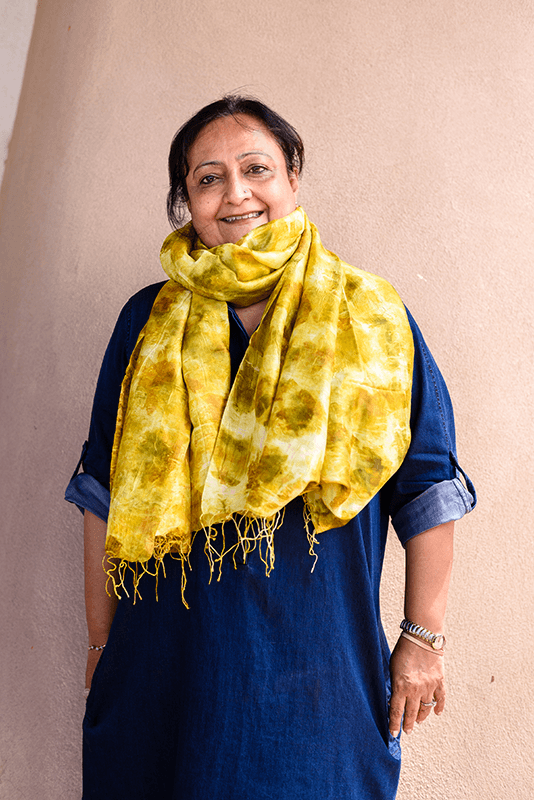In the urban Mumbai community of East Andheri, India, time-honored connections to the materials and processes that produce natural dyes for vibrant Indian silks and cottons have long been lost to the ease and accessibility of chemical colorants. In 2008, however, Rupa Trivedi, an ultrasonic engineer, set out to reclaim the power of natural plants and flowers. From a few experimental dye pots in her kitchen, she cooked up Adiv Pure Nature. The company provides social opportunity and creative education and expression for a team of predominantly female low-income workers in this densely populated corner of Mumbai, while drawing an international clientele, including internationally renowned labels like Eileen Fisher and Anthropologie
Adiv’s hand-dyeing team creates exquisite, natural-dyed fabrics for scarves, garments, jewelry, and more. Their flagship Temple Blessings Project is an innovative initiative in which offerings at local Hindu temples—including marigold, coconut husk, hibiscus, and rose—are recycled into dyes and materials for steamed textured prints. Before Adiv, the offerings were discarded in the sea, polluting Mumbai’s sacred temple areas. Now, they are collected and sorted by elder Adiv team members, then dried and processed for use in silk and cotton textiles made by handweavers from Maharashtra, Bengal, and Maheshwar.
Adiv’s on-the-job training program emphasizes sustainability and handmade creativity. Artists not only learn about dyeing and design, but about water recycling, composting, and non-toxic ecological practices. In addition to flowers from the temple project, team members utilize natural waste products, such as onion peel and coconut, from street vendors and restaurants; organic flowers from small Mumbai-area farmers; and food grade ayurvedic materials, including pomegranate peel, harda, annato, madder, and indigo. It all translates to income, health care, and other quality-of-life benefits for the Adiv team and their families.
